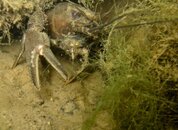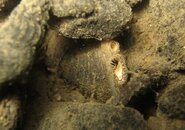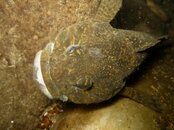Hi everybody
I recently got (back) into scuba and I love it! I’m a few weeks away from completing PADI Master Scuba Diver. Having followed the forums for a few months and seen a general trend of similar (negative) views towards this rating, I thought I would present an alternative viewpoint to encourage others. I want to focus on the content of MSD rather than the title, as whilst I see how the MSD title is contentious, it is also highly subjective. I don’t personally have a problem with it.
By the time I complete MSD, I will have completed 21 training dives across nine courses (OW, AOW, EFR, RD, Nav, Deep, Wreck, Dry Suit and Nitrox) plus around five days of theory e-learning, so almost a month of full time training. I will have a further 29 recreational dives in both tropical and cold water, sea and lakes. Whilst I don’t feel I am ‘expert’, I do feel safe, competent and that I have mastered the basic skills in a range of conditions. Perhaps it’s not the usual approach but I have viewed it as a single training pipeline, albeit one that has been modularised to make it more accessible.
I have also enjoyed the flexibility, being able to tailor my specialties to my interests and local needs. I know another criticism is that you can count several non-dive specialties; but do many people actually do that? Or do most people actually take a combination of dive and non-dive training to suit their needs? Either way, as a minimum they still need RD and fifty dives.
The speciality courses on their own haven’t made me an expert, or even competent, in the skills taught. But I don’t think they aim to. You learn skills on the courses, but it’s through applying them on recreational dives outside of training that I’ve practiced them and built my experience.
Another one of the criticisms of MSD seems to be based on a comparison with NAUI MSD, but I don’t see how one is better or worse than the other. NAUI MSD requires 19 training dives (fewer than I have done with PADI) and a dive theory package-the professional dive theory course for PADI can be done separately (and optionally) or as part of the DM course. Those who want it can do it; but having looked into it, I don’t see how professional level dive theory is relevant for amateur recreational diving of this type, even for MSD.
The received wisdom on SB is to do courses such as NAUI MSD and GUE Fundies. If I’d followed the advice I’d read on SB I would never have considered PADI MSD as it feels like the only route advocated is to push to be a highly trained amateur diving specialist. I’d like to advocate an alternative for other newcomers to diving - PADI MSD has been challenging enough to be rewarding, but modular and flexible enough to be relevant and accessible. It has given me a good foundation to enjoy a new hobby, receive some good training, learn new skills - and have a lot of fun. Let’s not lose sight of that!






